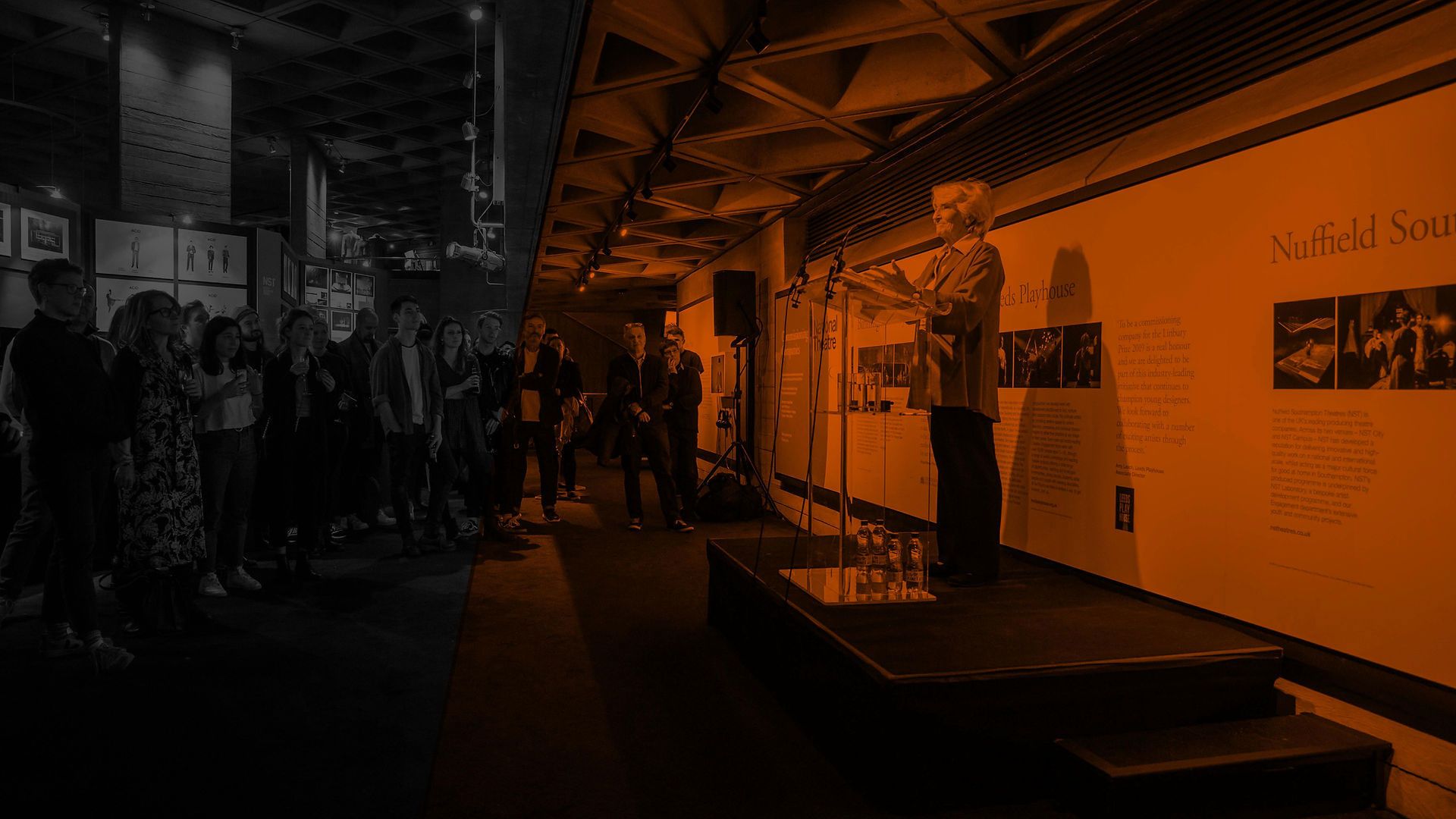
Linbury Prize for Stage Design – interview with winner Pip Terry, BA Theatre Design

- Written byGeorgina Lampen
- Published date 11 April 2022

Pip Terry and Ruth Badila, who graduated from BA Theatre Design at Wimbledon College of Arts in 2020, have been announced as 2 of the recipients of the 2021 Linbury Prize for Stage Design.
The Linbury Prize is awarded every 2 years and is a prize for excellence in stage design. Founded by Lady Anya Sainsbury in 1987, the prize celebrates and fosters the best emerging stage designers through collaboration with professional theatre, dance and opera companies.
For 2021, in response to an unprecedented year of disruption for students and uncertainty among emerging theatre-makers, 12 UK graduates have been awarded a £5,000 bursary each, together with a design associate placement alongside an established designer.
One of this year's recipients, Pip Terry, has just been appointed as the Kiln Theatre’s second Resident Assistant Designer, where she will be mentored by Associate Designer Tom Piper. Pip has recently worked on productions such as Splintered at the Soho Theatre, and Helter Skelter, which played at the Cockpit Theatre and Assembly Rooms in Edinburgh. She's also been designing spaces and projects at The Rose Theatre Kingston, The Tristan Bates Theatre, and Lyric Hammersmith.
Here, Pip tells us more about receiving the Linbury prize.

How did you initially find out about the Linbury Prize for Stage Design, and what was your submission?
I found out about the Linbury Prize through my tutors and peers while studying BA Theatre Design at Wimbledon College of Arts. We were strongly encouraged to apply, as the prize is only available to graduating or recently graduated students.
I applied with a 10-page portfolio, a mixture of early sketches, photos of model boxes, production shots, costume drawings, and technical drawings. It was recommended that we show a wide range of work in our portfolios, illustrating multiple projects at various stages of completion. Due to Covid restrictions, my submission was a digital portfolio, and so it was interesting to curate work from many physical sketchbooks into a concise tech-friendly version.

What experiences and opportunities do you feel you gained having been selected as one of the prize recipients?
Before submitting my application, I signed up for 1 of the portfolio workshop sessions the National Theatre organised. This session introduced me to some established designers, producers, and stage managers, who all gave me some great advice and constructive criticism to make my portfolio read better. I know I’ll go on to use these skills in design presentations to come.

After being lucky enough to be selected as one of the final 12 candidates, I felt a huge boost in my confidence and belief in my ability as a designer. After graduating into a pandemic with little-to-no job opportunities and a sudden loss of creative community, the Linbury Prize came at a great time for me, putting me back in touch with other early-career designers. It has since also put me in touch with other established designers with the opportunity to assist.

As part of being selected for the Linbury Prize, the 12 emerging designers are offered a design associate placement. I feel excited to find out what project I will be working on next and what I can learn from those leading the industry. I am grateful to be given this opportunity to further my practice, establish a network, and give back to an industry that has taught me so much already.

What did you enjoy most about studying BA Theatre Design?
The thing I enjoyed most about studying BA Theatre Design at Wimbledon was getting an introduction into the industry and meeting some wonderful people along the way. Before I came to university, I didn’t understand all the magic that goes on behind the scenes, as well as on stage, and all the people it takes to make a show happen.
I enjoyed any opportunity we got to work in a team and relished the chance to get hands-on experience designing for live performance. The best parts were putting on shows in the Wimbledon College of Arts Theatre, and the buzz that comes with that.
- Follow Pip on Instagram @pipterry_design
- Find out more about BA Theatre Design